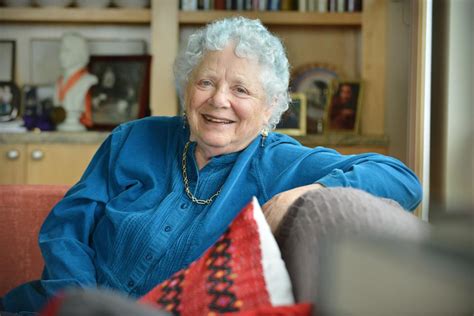A Quote by John Ashbery
I would like to please the reader, and I think that surprise has to be an element of this, and that may necessitate a certain amount of teasing. To shock the reader is something else again. That has to be handled with great care if you're not going to alienate and hurt him, and I'm firmly against that, just as I disapprove of people who dress with that in mind - dye their hair blue and stick safety pins through their noses and so on.
Related Quotes
In my couple of books, including Going Clear, the book about Scientology, I thought it seemed appropriate at the end of the book to help the reader frame things. Because we've gone through the history, and there's likely conflictual feelings in the reader's mind. The reader may not agree with me, but I don't try to influence the reader's judgment. I know everybody who picks this book up already has a decided opinion. But my goal is to open the reader's mind a little bit to alternative narratives.
I'm a reader. I like - I'm a great reader. I keep going back, though, to certain authors, just like I love film, but I keep going back to just five or six certain filmmakers. In literature I like Chekhov, for example; I think he's my favorite. And Flaubert - you know, that kind of concision. But I also like Tolstoy; I love those romances that, you know, weigh 500 pounds and take months and months and months to read.
Nice writing isn't enough. It isn't enough to have smooth and pretty language. You have to surprise the reader frequently, you can't just be nice all the time. Provoke the reader. Astonish the reader. Writing that has no surprises is as bland as oatmeal. Surprise the reader with the unexpected verb or adjective. Use one startling adjective per page.
I think the trick of being a writer is to basically put your cards out there all the time and be willing to be as in the dark about what happens next as your reader would be at that time. And then you can really surprise yourself. There's that cliche, "No surprise for the writer, no surprise for the reader!"
Don't be afraid to be yourself just because you're not like everybody else in class. If you want to dye your hair green and that's what makes you happy, then dye your hair green, no matter what other people might say about it. Not everybody is going to like you - that's the world we live in; that's reality.
Writer’s block is my unconscious mind telling me that something I’ve just written is either unbelievable or unimportant to me, and I solve it by going back and reinventing some part of what I’ve already written so that when I write it again, it is believable and interesting to me. Then I can go on. Writer’s block is never solved by forcing oneself to “write through it,” because you haven’t solved the problem that caused your unconscious mind to rebel against the story, so it still won’t work – for you or for the reader.






































